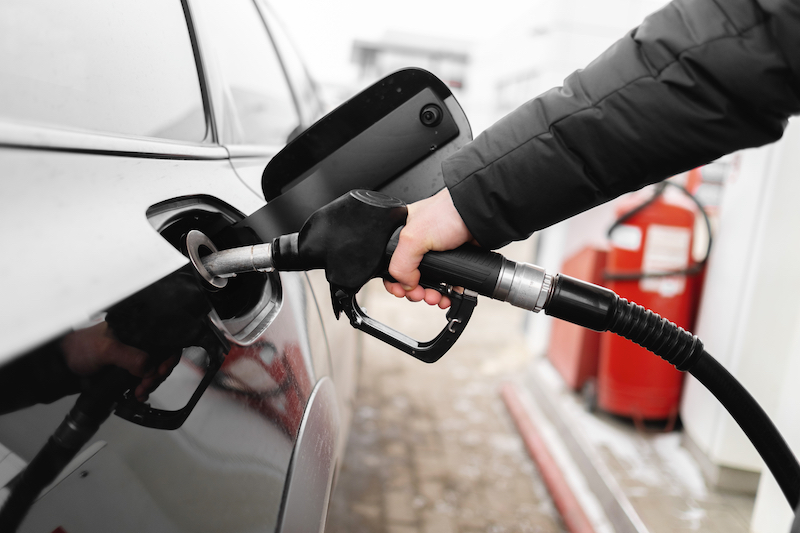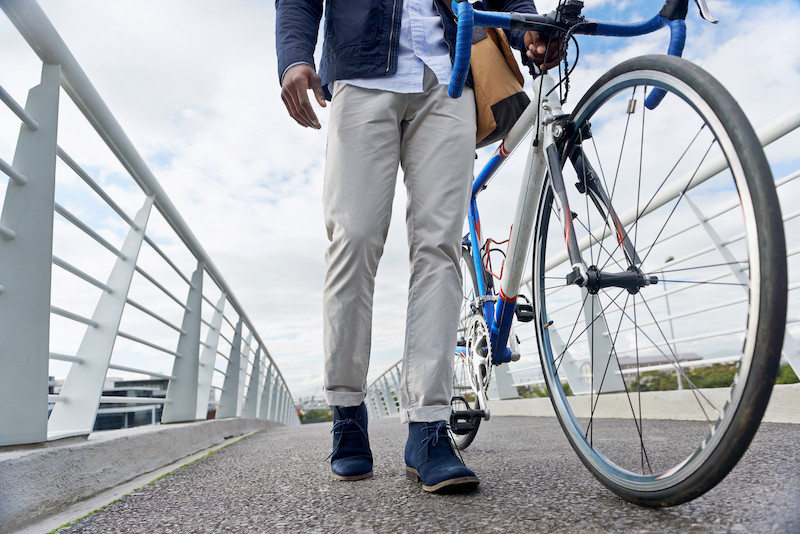Tips and Tricks to Drive Less
Show your wallet, the planet, and your health some love simply by spending less time behind the wheel

Show your wallet, the planet, and your health some love simply by spending less time behind the wheel

Maybe you wince when you fill up your tank. Or you care a lot about the environment and want to lower your carbon footprint. If you’ve decided you want to drive less, you’ve come to the right place.
At Lemonade Car, we’re a different kind of car insurance. Our product was built to reward you for driving less. Are you an aspiring (or on-the-fence) low-mileage driver that’s ready to save on your insurance premiums? This one’s for you.
Let’s take a spin through our top incentives and tips to help you drive less.
There are so many benefits of spending less time on the road—for your health and safety, your wallet, and the planet. One or more of these many reasons might be the exact motivation you need to not go the extra mile.

When you drive less, you pay less at the pump. Unless you own an electric vehicle, gas prices have probably been hitting your wallet pretty hard. Even if you get great gas mileage, high gas prices still sting. Adjusting your driving habits could save you money.
There’s a reason that auto insurance companies ask how many miles you drive annually when you get a quote—the more you drive, the more wear and tear on your car (and the higher likelihood that you’ll be in a crash). Fewer miles and routine maintenance can help your sweet ride stay on the road longer.
It’s common sense, right? The fewer miles you drive, the less you’re on the road, and the lower the chance you’ll get in an accident. And if you can avoid rush hour, even better. One study found that 62% of fatal accidents occurred during the evening commute. And don’t forget, once a collision hits your driving record, your car insurance rates will likely go up.
If you’re the social type, you may enjoy carpooling to work or activities. Meet up with friends and drive (or book an Uber XL) together to a concert, instead of taking separate cars.

Are you worried about greenhouse gas emissions? High emissions are a major contributor to global warming and climate change. Driving less means doing your part for the environment.
But when you do need your car to get from Point A to B, Lemonade Car has your back. We use your mileage to calculate how many trees we plant to help clean up your emissions from driving.
How many hours did you save on your daily commute during the pandemic? A lot of people discovered that they gained one to two hours back in their day. Long commutes have been linked to higher blood pressure, back and neck pain, stress, and depression. If you’re working remotely, you could be lowering your mileage and stress levels. Now that’s a win-win.
Even if you still have to commute to work, the distance you live from your office can have a huge impact… One study found that for every 6.2 miles added to a commute, productivity dropped.
Would you love to join your co-workers at Happy Hour without worry? Book a rideshare home! If you’re commuting on public transit or rideshare, you can order that second drink. (And third? Fourth? We’re not judging, as long as you’re not drinking and driving.)
Whether you’re paying rent or a mortgage, it might be nice to get cozy at home more often. Why not take your laptop and work from the fresh air of your balcony or patio? Or sneak in some quality time with your closest friends in your conversation pit.
Rush hour traffic isn’t just a nightmare for drivers, it impacts road conditions. Plus, spending 30 minutes to an hour looking for parking is sure to send your blood pressure higher than recent gas prices.

Walking a few blocks to the grocery store to pick up oat milk and kitty litter instead of driving is good for the environment and your health. Shifting your focus away from driving when possible could lead to exercising more. Getting around on foot could be even easier if you live in one of the most walkable cities in the US.
Car insurance companies calculate your insurance premium based on a lot of things, including your annual mileage. So when you drive less, you may see your premiums go down.
There are quite a few ways to spend less time behind the wheel. We’ve mapped out some of our favorites.

Why not ask around at work and see if anyone lives near you? Carpooling to work is a great way to drive less. Even if your company has returned to office life, you might still be able to arrange working remotely a couple days a week.
Try taking other forms of transportation than a car. A bus, commuter rail, subway, train, or ferry, you may have more options in your city than you’d think. Even if there isn’t a bus stop right outside your front door, get creative! Could you drive five minutes to a park and ride—instead of 45 minutes into work—and then take the bus?
Taking your bike for a spin is a great way to get some exercise on the way to work or to run errands, and to avoid driving and public transportation when you can. Check out the safest cities for bike commuters.
Did you know that the average American took 2.5 car trips daily in 2019-2020? That’s an average of 30 miles, or 59 minutes a day. With a little planning before heading out the door with your car keys, you could probably widdle this down.
Instead of—grocery store on Monday, dry cleaners Tuesday, and the vet and pet store Wednesday, why not plan out your driving for the week? Some driving may be unavoidable, such as a kid’s soccer practice. But could you swing by the pet store on your way there? Thoughtfully combining errands and unavoidable car trips could cut down on your driving.
At Lemonade, we make it easy for low mileage drivers to save on car insurance. Once you enable location services and permissions on the Lemonade app, we use telematics to help fairly price your coverage based on the number of miles you actually drive, along with other factors like your driving history and driving habits.
We reward safe drivers (raise your hand if you ease around turns and treat your brakes with care) with discounts and great rates.
Why not get your quote started below?
Please note: Lemonade articles and other editorial content are meant for educational purposes only, and should not be relied upon instead of professional legal, insurance or financial advice. The content of these educational articles does not alter the terms, conditions, exclusions, or limitations of policies issued by Lemonade, which differ according to your state of residence. While we regularly review previously published content to ensure it is accurate and up-to-date, there may be instances in which legal conditions or policy details have changed since publication. Any hypothetical examples used in Lemonade editorial content are purely expositional. Hypothetical examples do not alter or bind Lemonade to any application of your insurance policy to the particular facts and circumstances of any actual claim.